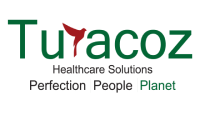Regulatory writing, a crucial skill in various industries, can be enhanced through training programs. These programs are designed to navigate the complex requirements of regulatory documents and offer numerous benefits, such as crafting clinical study reports, protocols, and regulatory submissions. The programs also provide practical exercises, case studies, networking opportunities, and collaboration with industry professionals, ensuring you stay abreast of the latest trends and practices. This blog will explore the key features of online regulatory writing courses, their real-life applications, the top platforms offering such courses, and recommended course options.
Choosing A Regulatory Writing Course Online
Key features to maximize your online learning experience include:
- Opt for courses taught by seasoned industry professionals who have honed their skills in regulatory writing. Their wealth of experience can offer you invaluable insights and practical knowledge.
- Look for courses that offer interactive learning environments, including live webinars, discussion forums, and virtual workshops. These platforms allow you to actively engage and participate, making it easier to understand the subject matter.
- Consider courses that provide comprehensive course materials, such as study guides, reference materials, and practice exercises. These resources can be helpful references even after you complete the course.
- Ensure that the online course offers flexibility regarding scheduling and access to course materials. This allows you to learn at your own pace while balancing your existing work or personal commitments.
Mastering Regulatory Writing Skills
Specific strategies include:
- Setting Clear Goals: Define your objectives and prioritize the skills you wish to develop in regulatory writing.
- Staying Organized: Create a study schedule and allocate dedicated time each week for learning and practice.
- Engaging Actively: Use interactive elements in online courses, such as quizzes and discussion forums, to reinforce your understanding and engage with fellow learners.
- Seeking Feedback: Share your work with peers or instructors for feedback and constructive criticism to improve your writing skills.
- Staying Updated: Continuous learning and professional development can help you stay informed of the latest developments in regulatory guidelines and industry best practices.
Real-life Applications
The knowledge and skills gained from regulatory writing training programs have numerous real-life applications in the pharmaceutical, biotechnology, and medical device industries. Becoming a regulatory writer, you can play a crucial role in ensuring that companies comply with regulations and guidelines when preparing and submitting regulatory documents.
- Primary responsibility is to create clinical study reports that accurately and comprehensively present the results of clinical trials. These reports are crucial for regulatory submissions and obtaining new drug or medical device approval.
- Contribute to developing protocols that outline clinical trials’ objectives, methodology, and ethical considerations. These protocols serve as a blueprint for trials and provide vital information for regulatory authorities.
- Additionally, you may be involved in preparing regulatory submissions, such as Investigational New Drug (IND) applications and New Drug Applications (NDA). These submissions are critical for obtaining regulatory approvals and marketing new therapies.
- Regulatory writing training is essential to equip you with the knowledge and skills to navigate the complex regulatory landscape and contribute to developing safe and effective healthcare products.
Click Here:- Future of Ghost Writing: Can AI Take Over?
Recommended Online Courses
If you are interested in pursuing a career in regulatory writing, several online courses can help you gain the necessary knowledge and expertise. Some of these courses include:
- Regulatory Writing Certification Programs: Look for reputable certification programs focusing on regulatory writing. These programs often cover essential topics such as regulatory submissions, document preparation, and compliance standards.
- Medical Writing Courses: Explore online courses that focus on medical writing, which typically include modules on regulatory writing tailored to the healthcare industry. Topics may include writing clinical study reports, investigator brochures, and regulatory submission documents.
- Clinical Research and Regulatory Affairs Courses: Enrol in courses that comprehensively understand clinical research methodologies and regulatory affairs. These courses delve into topics such as clinical trial design, data interpretation, and regulatory requirements for documentation.
- Good Clinical Practice (GCP) Training: Gain expertise in GCP principles through online training programs from reputable organizations. Understanding GCP is essential for ensuring the integrity and compliance of regulatory documents related to clinical trials.
- Writing Workshops and Seminars: Participate in online writing workshops and seminars on regulatory writing. These events often feature industry experts who provide valuable insights and practical tips for crafting effective regulatory documents.
Top Online Platforms Offering Regulatory Writing Courses
Several globally recognized platforms offer numerous resources and opportunities for learning and skill development in regulatory medical writing. A few popular platforms include:
- Coursera is a renowned platform for its partnerships with leading universities and institutions worldwide, which provide access to high-quality courses often taught by industry experts.
- Udemy is another prominent platform that offers a wide selection of online courses covering diverse topics, including regulatory medical writing, with options suitable for learners of all levels.
- LinkedIn focuses on professional development and provides a range of courses and tutorials on regulatory medical writing, catering to the needs of professionals looking to advance their careers in this field.
- MedComms Networking and the Society for Technical Communication (STC) serve as specialized medical and technical communication training hubs, offering resources and courses explicitly tailored for regulatory medical writing professionals.
These platforms offer a convenient and accessible way for learners to acquire essential skills and knowledge in regulatory medical writing.
Online regulatory writing training programs offer valuable benefits if you want to enhance your skills and advance your career in the pharmaceutical, biotechnology, and medical device industries. Mastering regulatory writing provides a gateway to professional advancement and personal growth. By enrolling in these programs, you can gain comprehensive knowledge, practical skills, and valuable networking opportunities essential for regulatory writing success.
Are you interested in becoming a skilled regulatory medical writer? Grab this opportunity to join Turacoz! We are a committed global organization that makes healthcare information accessible through empowering training programs with our professionals, who will help you achieve your goal with confidence. Join our community of writers and take the first step towards a successful career. Please email us at [email protected] to learn more and get started today!







































